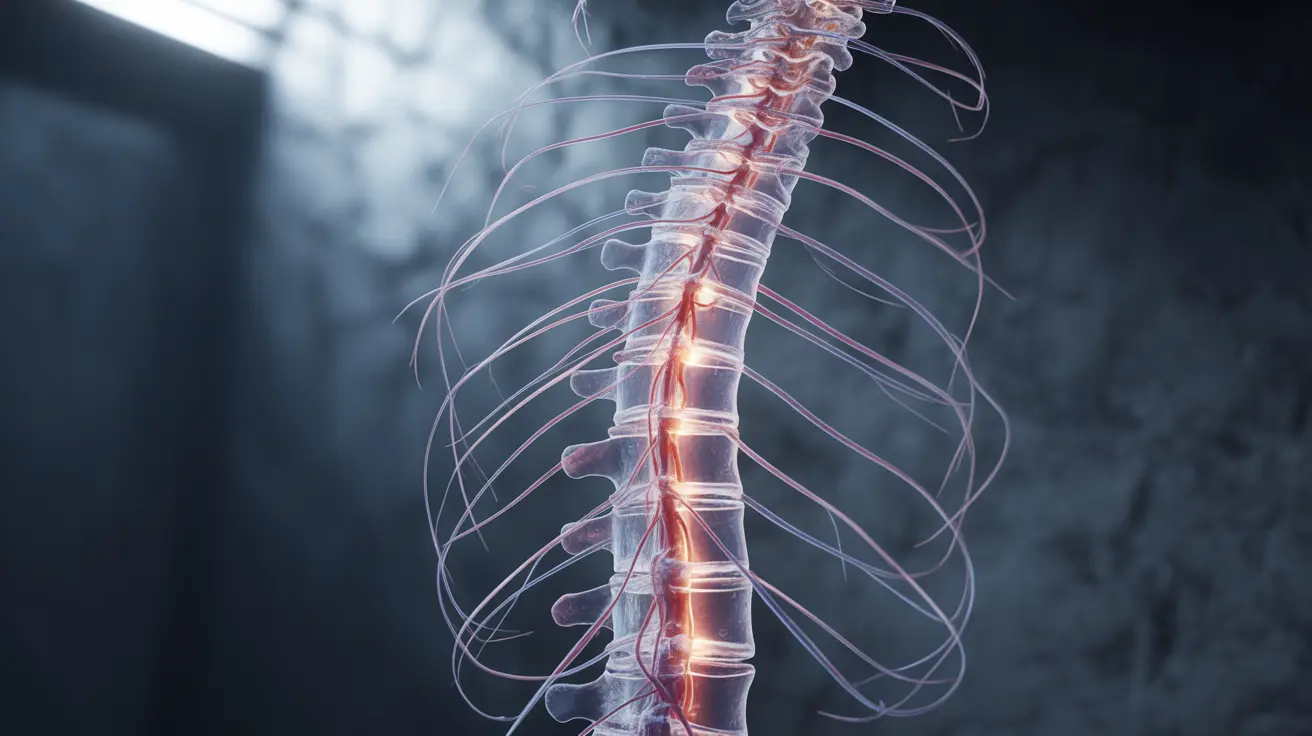A burning sensation in your back can be an uncomfortable and concerning experience that affects your daily activities and quality of life. This type of pain can range from mild discomfort to severe distress, and understanding its underlying causes is crucial for proper treatment and management.
While some cases of burning back pain may resolve on their own with proper self-care, others might indicate more serious conditions requiring medical attention. Let's explore the various causes, symptoms, and treatment options available for managing this common condition.
Common Causes of Burning Back Pain
Several factors can contribute to a burning sensation in your back, ranging from muscle-related issues to nerve problems:
Muscle-Related Causes
- Muscle strain or overuse
- Poor posture
- Heavy lifting
- Repetitive movements
- Exercise-related injury
Nerve-Related Causes
- Pinched nerves
- Herniated discs
- Spinal stenosis
- Neuropathy
- Fibromyalgia
Other Medical Conditions
- Shingles
- Multiple sclerosis
- Spine infections
- Inflammatory conditions
- Anxiety and stress
Identifying the Source of Your Back Pain
Understanding the nature of your burning sensation can help determine its cause. Muscle-related pain typically:
- Worsens with movement
- Feels better with rest
- May be accompanied by stiffness
- Usually affects a specific area
Nerve-related pain often:
- Radiates to other areas
- Includes tingling or numbness
- May feel like electrical shocks
- Can be constant or intermittent
Treatment Options and Management Strategies
Immediate Relief Measures
- Apply ice or heat therapy
- Practice gentle stretching
- Use over-the-counter pain relievers
- Maintain proper posture
- Take regular breaks from prolonged sitting
Long-term Management
- Physical therapy exercises
- Posture correction
- Stress management techniques
- Regular exercise routine
- Ergonomic workplace adjustments
Prevention Tips
To reduce the risk of developing burning back pain:
- Maintain good posture
- Exercise regularly
- Use proper lifting techniques
- Take frequent breaks from sitting
- Manage stress levels effectively
- Keep a healthy weight
When to Seek Medical Attention
Consult a healthcare provider if you experience:
- Severe or worsening pain
- Pain that doesn't improve with rest
- Numbness or weakness
- Loss of bladder or bowel control
- Fever or unexplained weight loss
Frequently Asked Questions
What are the common causes of a burning sensation in the upper back?
Common causes include muscle strain, poor posture, pinched nerves, herniated discs, and stress-related tension. Some medical conditions like shingles or fibromyalgia can also cause burning sensations in the upper back.
How can I tell if my burning upper back pain is due to muscle strain or a more serious condition like a herniated disc?
Muscle strain typically causes localized pain that worsens with movement and improves with rest. A herniated disc often causes radiating pain, numbness, or tingling sensations that may extend to the arms. If you're unsure, consult a healthcare provider for proper diagnosis.
What treatments are effective for managing a burning sensation in the upper back?
Effective treatments include rest, ice/heat therapy, gentle stretching, over-the-counter pain medications, physical therapy, and posture correction. The best treatment depends on the underlying cause of your pain.
When should I see a doctor for burning pain in my upper back?
Seek medical attention if you experience severe pain, symptoms that don't improve with self-care, numbness or weakness, loss of bladder/bowel control, or if the pain is accompanied by fever or unexplained weight loss.
Can poor posture or stress cause a burning sensation in the upper back?
Yes, both poor posture and stress can cause burning sensations in the upper back. Poor posture can lead to muscle strain and nerve compression, while stress can cause muscle tension and trigger points that create burning sensations.




